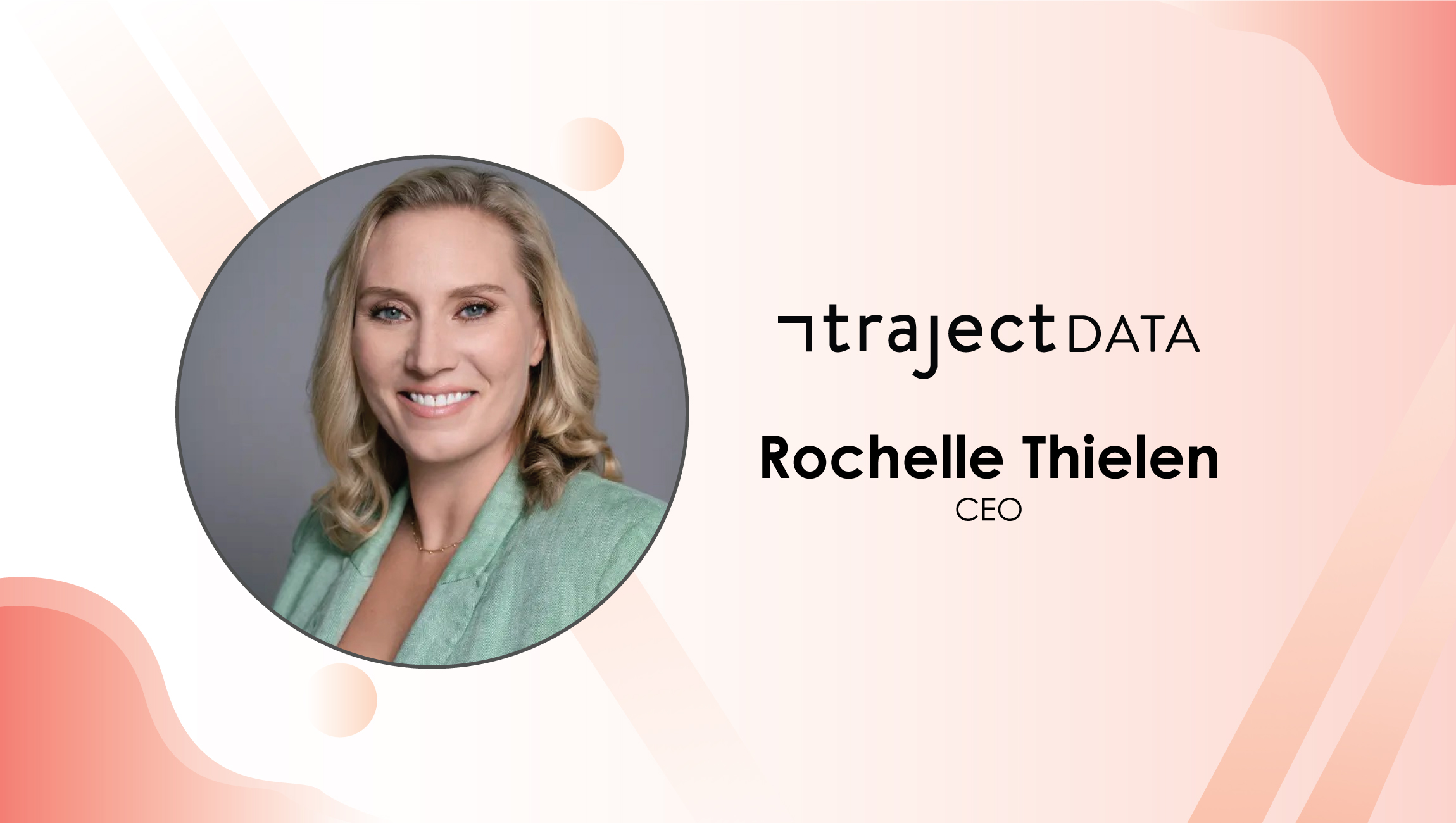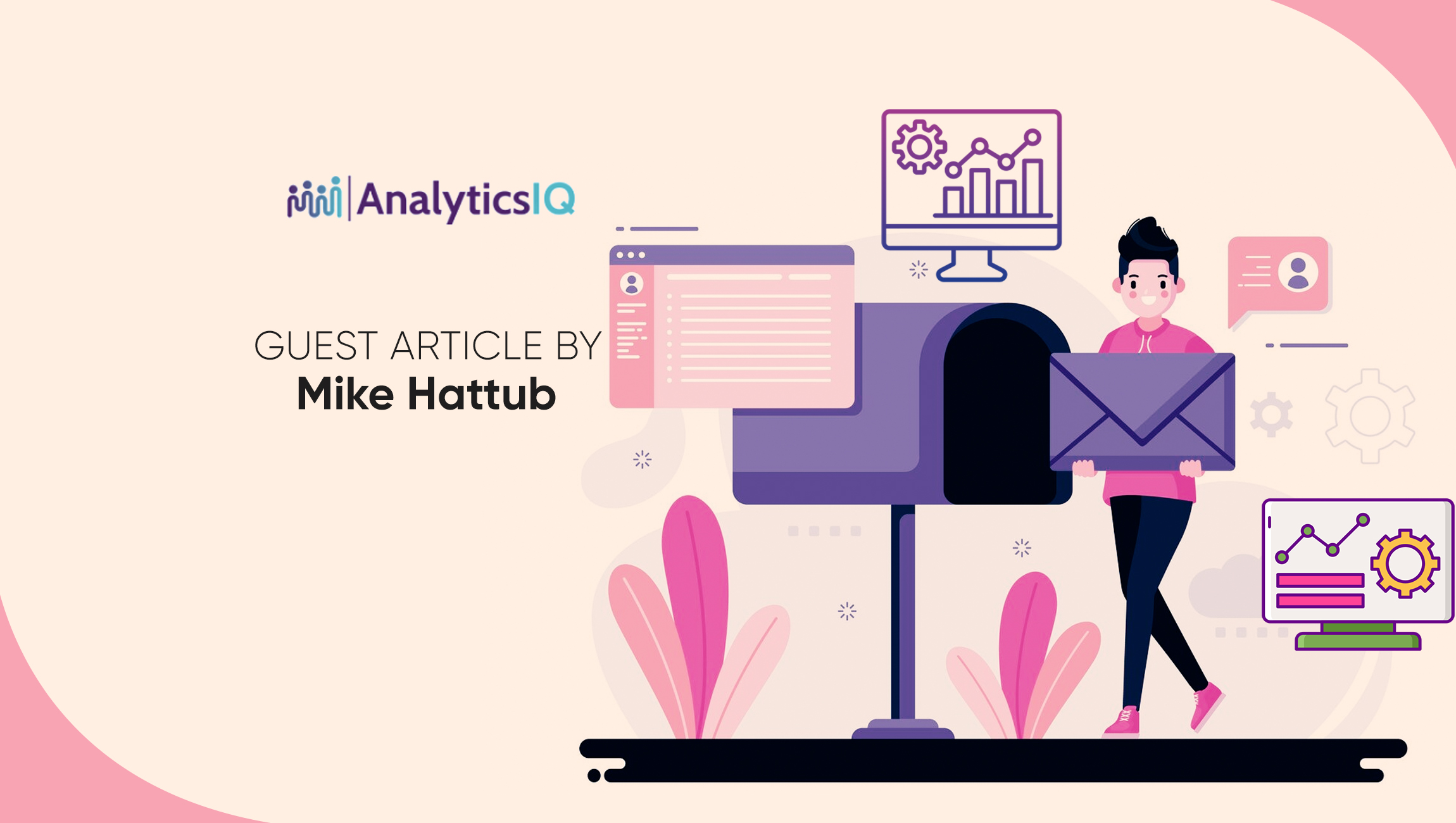Rochelle Thielen CEO at Traject Data shares a few SERP fundamentals for modern B2B marketers to keep in mind:
_________
Hi Rochelle, tell us about yourself and your role at Traject Data
I’m the CEO here at Traject Data. My background is in private equity and venture-backed SaaS leadership, with an emphasis on data-based solutions. I’ve worked in many sectors, including automotive, insurance, logistics, and marketplaces– primarily, seeking to understand how applied data can solve problems and improve outcomes. In my day-to-day work at Traject Data, I operate alongside our talented and passionate team to help achieve the company’s mission– using data aggregation to drive transformative advancements in AI, machine learning, and software development.
How has Traject Data evolved in recent years?
Since launching in 2020, Traject Data has undertaken a period of sustained evolution and growth. We’ve expanded our API stack to offer 10 SERP and eCommerce APIs for leading marketers, growth strategists, and retailers. We’re proud to have increased service levels by doubling the size of our customer support and development teams while investing in additional infrastructure and load-balancing to continue to offer higher-fidelity, faster, and more reliable data to our customers.
From a business development perspective, we’ve prioritized evolving based on what we’re hearing from our customers and their data needs. For example, we’ve enriched data for our most popular eCommerce API, Rainforest API, by including specialized data fields for yearly events– such as Amazon Prime Days.
What myths around SERP would you like to bust in this conversation?
- Myth: SEO is a set-it-and-forget-it strategy. On the contrary, SEO is always changing. It’s important to keep a pulse on your ongoing strategy, continually check back, and make adjustments based on new findings. Search engines constantly change criteria and new competitors come into play. Make sure you are in the know of SERP trends and best practices as well as your competitive landscape.
- Myth: You can expect immediate results from SEO. You will not grow a winning SEO strategy overnight. SEO is a long-term game, so it’s important to take your time, run experiments, and implement best practices. Similarly, SEO strategies thrive best on consistency. Starting and stopping or having inconsistent timelines can greatly disrupt your SEO strategy and its benefits.
- Myth: You should only prioritize high-volume keywords. Some SEO pros claim you should always prioritize high-volume keywords that drive traffic to a site while leaving low-traffic queries like long-tail keywords off the list. The problem with this strategy is that over time that list of “insignificant” keywords can grow and grow. Without realizing it, those keywords become far more important to your business than you ever knew and now you’re left scrambling to make up the difference.
- Myth: Using a SaaS tool is the best way to optimize your SEO strategy. Raw SERP data obtained directly from an API provides real-time access to data, so you can make decisions based on the most current information available. APIs allow for automated data retrieval, which means you can easily integrate and aggregate multiple sources of data into your existing systems and processes, saving time and reducing the risk of errors. You’re also able to customize the analysis of your data, selecting the most relevant data fields for your business while getting a full picture of the results.
Marketing Technology News: MarTech Interview with Kimberley Cole, General Manager of Europe @ Newfold Digital, Leading Yoast
When it comes to some of the core SERP fundamentals, what do you think marketers miss out on most, that they should keep in mind?
Not having access to the right quantity of raw SERP data can be a big miss for marketers. This is a common problem because getting in-depth insights at high volume with a SaaS tool can be both difficult and cost-prohibitive.
With Traject Data’s SERP APIs, marketers instead benefit from a large volume of accurate and timely data, (i.e. data for millions of keywords) speeding up time to insight and finding hidden opportunities to beat the competition while building SERP visibility. Having access to large datasets means finding trends quickly and validating ideas confidently.
Can you talk about the impact of AI across SERP workflows and cycles today?
Concerning SERP, AI can be beneficial in reducing workflow times by assisting with research, identifying gaps in strategy, and optimizing content. AI is best used during research, analysis, and strategizing– but not the actual output of information. Search engines are getting increasingly better at recognizing AI outputs and identifying them as such.
Marketers need to be especially careful around the use of AI and ensure that their content isn’t relying on it. Content should still be novel, well-written, relevant, and timely so that it performs well in the SERPs. The best way to ensure this is to have a human write your content wherever possible. Relying too heavily on AI can cause SEO results to reduce.
Can you talk about Traject Data’s API and how it enables eCommerce teams and brands?
Traject Data powers best-in-class SERP and eCommerce APIs to offer eCommerce teams and brands granular localization, a broader depth of source data, and lightning-fast speed with consistent reliability. Regardless of industry, the majority of our customers are responsible for interpreting data to uncover actionable recommendations that require large, reliable datasets.
eCommerce teams use our solutions to improve pricing and assortment, build internal business development tools, and keep a pulse on their competitors. Brands trust our APIs to protect their intellectual property by filling in the gaps from hard-to-source data (i.e. Amazon seller profiles) so they have a complete and accurate view of how their brand is being represented in the marketplace.
What about the future of eCommerce interests you most: how do you feel this landscape will evolve down the line?
One of the most exciting developments in eCommerce is the growth of artificial intelligence in the space. In particular, AI holds transformative potential for SEO and reimagining how a search engine performs. With the rise of GenAI, companies are no longer limited to text-based results, but rather the ability to integrate images, context, and other pertinent information for the viewer. Obviously, this is very exciting for eCommerce, as it allows shoppers to access pricing information alongside up-to-date ratings, photos, availability, and more. From the business side, they can reach a greater audience than ever before while finding the exact type of individual who is looking for their product. In some cases, a potential customer may not even need to click through to a website to view and buy products. While many of these tools are still in the initial stage, it’s exciting to see the advancements we’ve made and I predict this trend will only continue as companies implement AI-based technologies within their organizations.
Marketing Technology News: How can Marketing Data be Harmed by AI Bias?
Traject Data offers the most comprehensive SERP and eCommerce API stack available for fast, clean, and reliable data. We are trusted by over 48,000 data-driven retailers, marketers and growth strategists to process 2 billion monthly requests for companies worldwide. With Traject Data there’s no more wasted time and resources – just data-driven decision-making.
Rochelle Thielen is the dynamic CEO of Traject Data, where she champions the vital role of data aggregation in driving transformative advancements in AI, machine learning, and software development. With a distinguished background in private equity and venture-backed SaaS leadership, Rochelle brings a blend of quality-driven precision and agile innovation to the table, setting new benchmarks in the industry. Her extensive expertise spans data solutions across various sectors, including automotive, insurance, logistics, and marketplaces. Based in Los Angeles, CA, Rochelle enjoys hiking and skiing in her downtime, embracing the vibrant outdoor lifestyle of her city.











